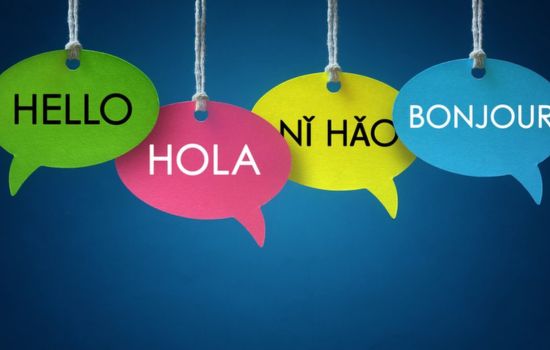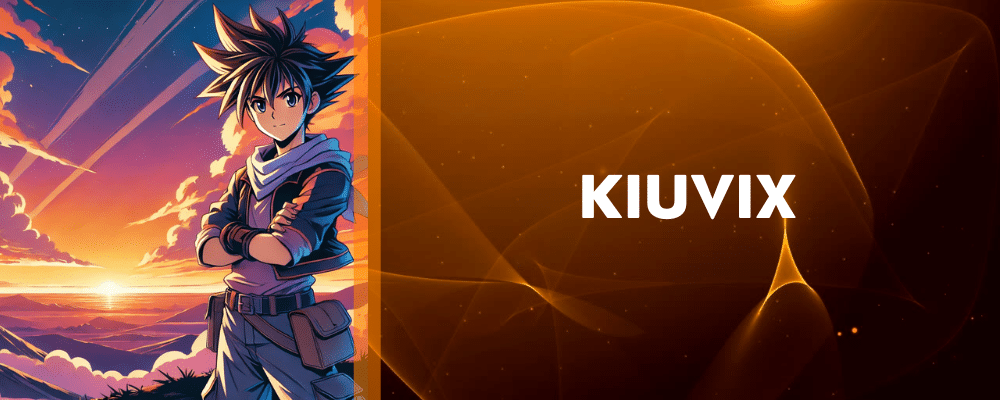Advertisements
Learning a new language is not just an academic goal: it's a way to open doors, discover cultures, and broaden personal horizons.
With just your phone, today you can access an educational experience that previously required years in a classroom.
And the best part: you can do it. at your own pace, From anywhere, without needing to spend large amounts of money.
Memrise: Languages for life
★ 4.5Information on size, installation and warranty may vary as updates are made in official stores.
Advertisements
Advertisements
See also
- Tune in to the world: the apps that bring back the magic of radio
- Sing like nobody's listening: the power of karaoke apps
- Recover your deleted photos with the best mobile apps
- Learn to play guitar with the best mobile apps
- Improve your sleep with the best sleep apps
Why can learning a language change your life?
Learning another language is not just about understanding words.
Is understanding people, stories and ways of thinking.
Each language is a cultural mirror that reflects how a society sees the world.
🌍 When you learn French, you get closer to the elegance of its literature.
🎬 With English, you can enjoy movies and songs without translation.
🧠 And with Japanese, you discover a completely new way of structuring thoughts.
Scientific studies have shown that learning languages It improves memory, concentration, and empathy.. Multilingual people develop greater cognitive flexibility and can solve problems more creatively.
And now, with the right apps, you can do it while traveling, cooking, or waiting for the bus.
The apps that are revolutionizing language learning
There are hundreds of options, but Only a few have truly managed to connect with users. Teaching vocabulary is not enough: you need motivation, play, structure, and emotion.
Let's look at the three apps that stand out the most in this area.
💡 Duolingo: Learn by playing
You've probably seen it. That little green owl that reminds you every day not to "break your streak.".
Duolingo is one of the most popular apps in the world to learn languages, and not by chance.
Its biggest secret is gamification.
You learn as you play, earn points, unlock levels, and compete against yourself. This transforms what was once a tedious task into a light and addictive experience.
🟢 Main advantages:
- Short, easy, and quick lessons.
- A reward system that motivates.
- Wide range of languages: English, French, German, Japanese, Korean and many more.
- Daily reminders that maintain consistency.
🔴 Disadvantages:
- Lack of grammatical depth.
- Little real conversational practice.
Even so, if you're looking a fun way to start, Duolingo is the perfect starting point.
🧠 Memrise: Learn with the power of memory
Memrise goes beyond the game. Its focus is on how the brain works and in how we best remember words.
It combines videos of native speakers, spaced repetition techniques, and cultural context.
The result? You learn as if you were living in the country where the language is spoken.
✨ What makes it special:
- Real videos of native speakers.
- Intelligent repetition that reinforces memory.
- Exercises that connect images with words.
- Courses created by experts and also by the community.
💬 Practical example:
Instead of memorizing "thank you," you'll watch a video of someone saying "thank you" naturally. Your brain associates the phrase with a real voice, expression, and tone.
So, You learn the way you learned your mother tongue: by listening and repeating.
🎯 Babbel: structure, clarity and purpose
If your goal is to speak fluently and master grammar, Babbel It is the most professional option.
It was designed by linguists and focuses on build a solid foundation, ideal for those seeking measurable results.
📘 What makes Babbel stand out:
- Lessons structured according to your level.
- Emphasis on grammar and useful vocabulary.
- Interactive exercises for speaking and writing.
- Thematic modules on travel, work and culture.
In addition, Babbel offers a clear progression: you can see your progress and measure how many actual hours you have studied.
While Duolingo tries to hook you, Babbel aims to educate you.
How to choose the ideal app for you?
Each person learns differently.
Some prefer fun and games; others need structure and concrete results.
Therefore, the important thing is to understand What kind of learner are you?.
📊 Compare and choose according to your goals:
| Main objective | Recommended app | Learning style |
|---|---|---|
| Learning in a fun way | Duolingo | Gamified and visual |
| Memorize with real-life examples | Memrise | Natural and contextual |
| Move forward with a professional structure | Babbel | Formal and guided |
And most importantly: Don't settle for just one.
Combining two or three apps can boost your progress in surprising ways.
Tips for getting the most out of these apps
🔹 Set realistic goals.
Learning a language isn't a race; it's a journey. Start with 10 minutes a day.
🔹 Listen and repeat.
Pronouncing words correctly is key. Use voice exercises and record yourself speaking.
🔹 Connect with native speakers.
Some apps have communities. Take advantage of them to practice real phrases.
🔹 Vary the formats.
Read, listen, watch, and write. The more senses you involve, the faster you learn.
🔹 Make it a part of your life.
Set your phone to the language you're learning, change your social media settings, or watch your favorite series subtitled in that language.
True stories that inspire
Maria, from Argentina, started on Duolingo just to "see what it was all about." A year later, she works serving clients in English.
Luis, from Mexico, used Memrise while traveling through Europe and managed to communicate with people in more than five countries.
Clara, from Spain, studied German with Babbel and today lives in Berlin working for a technology company.
These stories are real, but they could be yours.
The power of perseverance
Most people quit after a month because they feel they're "not making progress." But results come with consistent practice.
Studies show that 20 minutes daily They are enough to achieve basic fluency in a few months.
Learning a language is like training a muscle:
You don't need to do it all in one day, just keep it moving.
Make learning your routine, not your obligation.
Small habits that make a difference
📅 Daily schedule:
Always dedicate the same time, even if it's just 10 minutes.
🎧 Listen to podcasts in the language.
Even if you don't understand everything, your ear will adapt.
📚 He keeps a digital notebook.
Write down useful phrases, not just individual words.
🎮 Play with language.
Change the language of your favorite games or apps.
👥 Speak without fear.
Don't seek perfection. Seek connection.
A new language, a new version of you
It's not just about speaking English, French, or Japanese.
This is about discovering you in another language.
Each new word is a key that opens a different door: to new friendships, jobs, countries, and experiences.
📱 Thanks to apps like Memrise, Duolingo and Babbel, It has never been so easy to take that first step.
They're there, in your pocket, waiting for you to press "install".

Conclusion
Language learning is no longer a luxury or an impossible challenge.
Today, it's an opportunity within everyone's reach.
Digital tools have transformed the process into something dynamic, human, and accessible.
Memrise It teaches you with the voice of native speakers.
Duolingo turns studying into a game.
Babbel Structure your path with method and clarity.
You choose how to start, but the important thing is that you start.
Because each new language not only connects you with the world…
It connects you with yourself. 🌍💬




